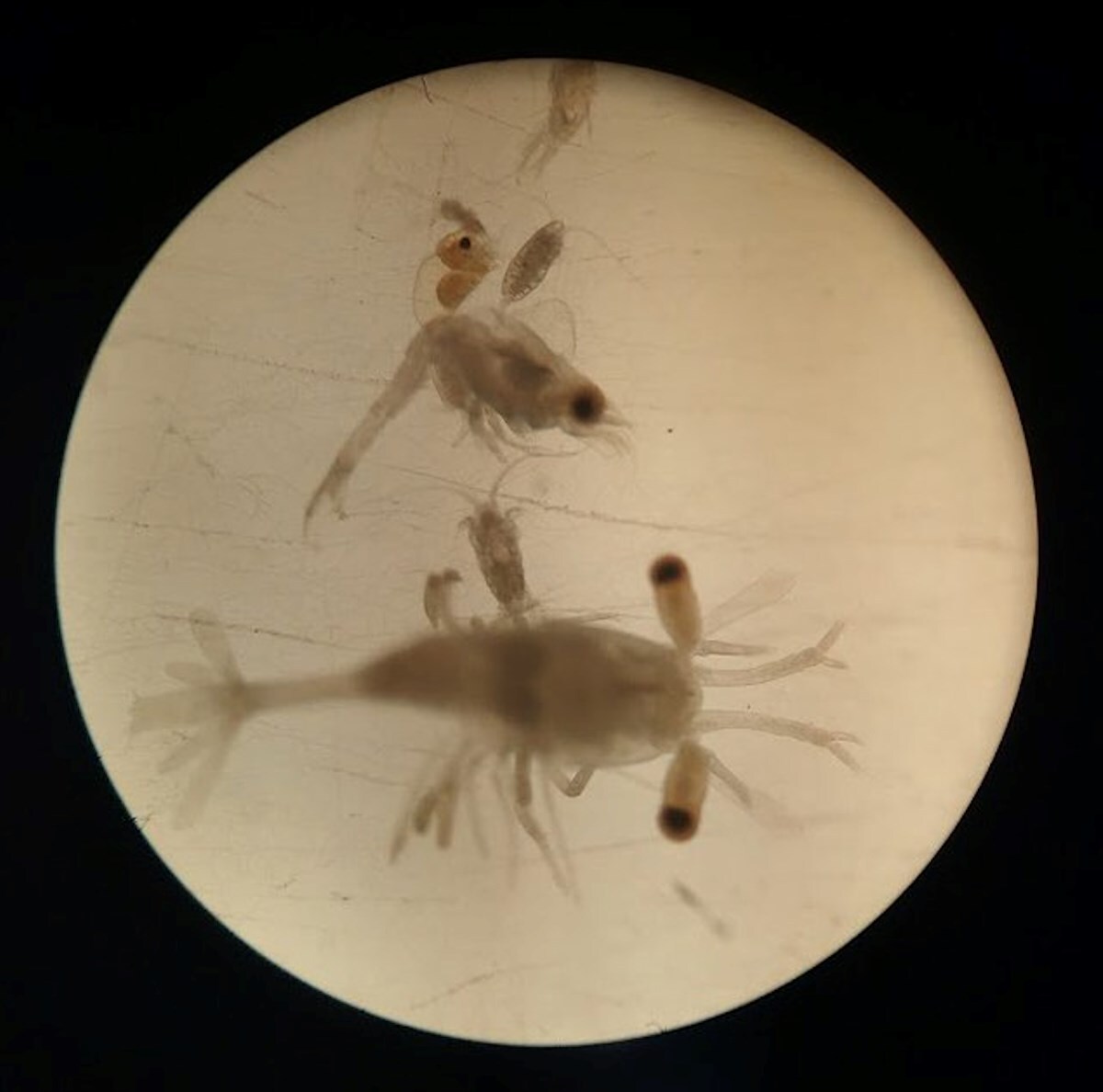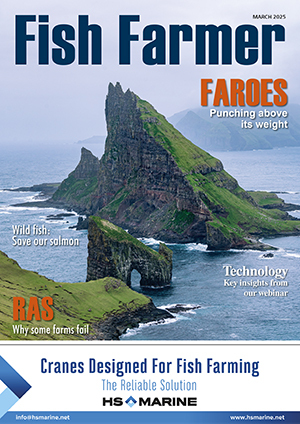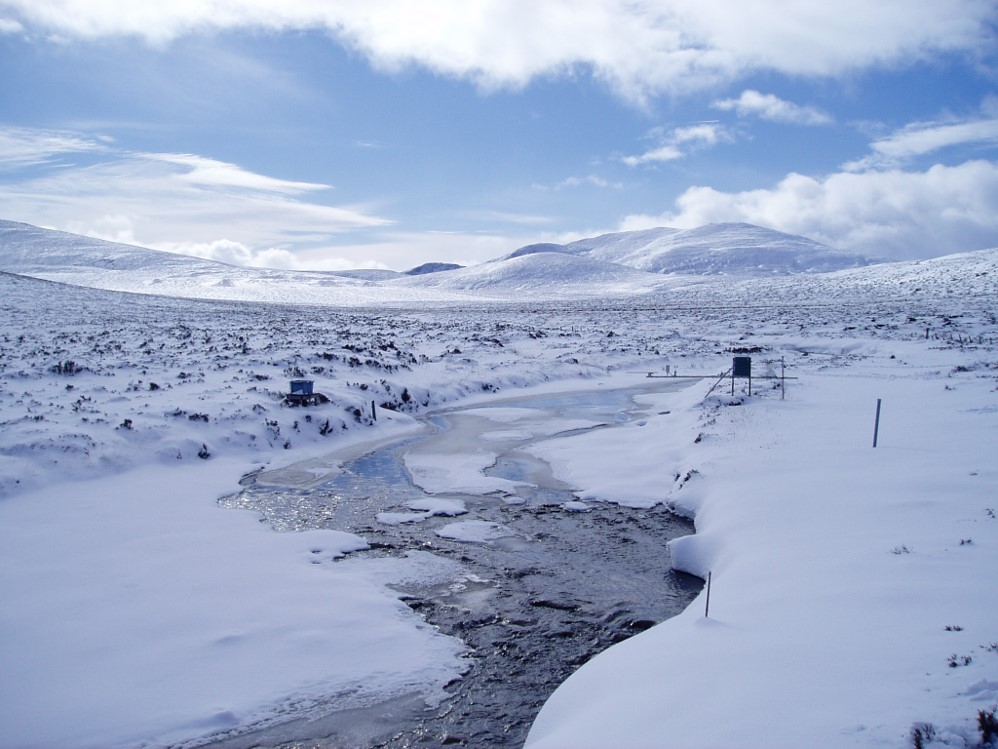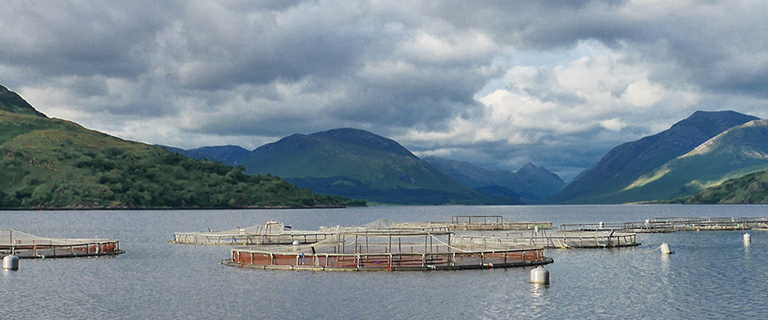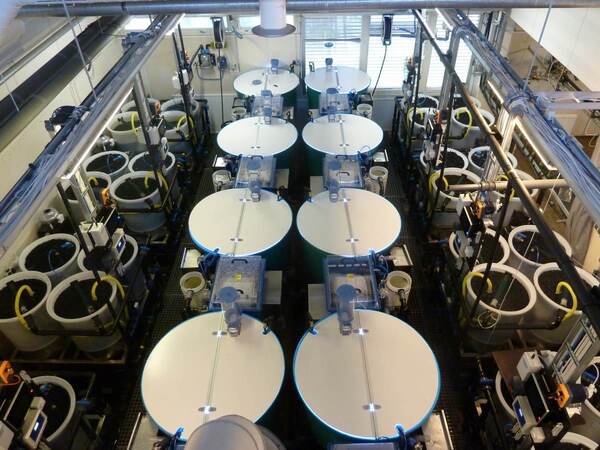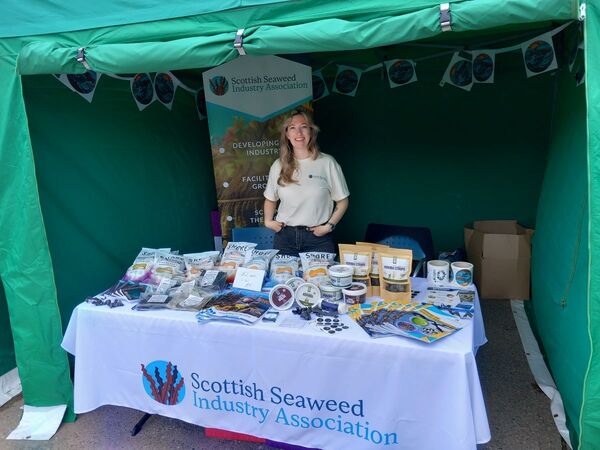The positive impact of a mussel farm
The Ropes to Reefs project shows that offshore shellfish aquaculture has the potential to create new natural environments, promoting biodiversity. Nicki Holmyard reports.
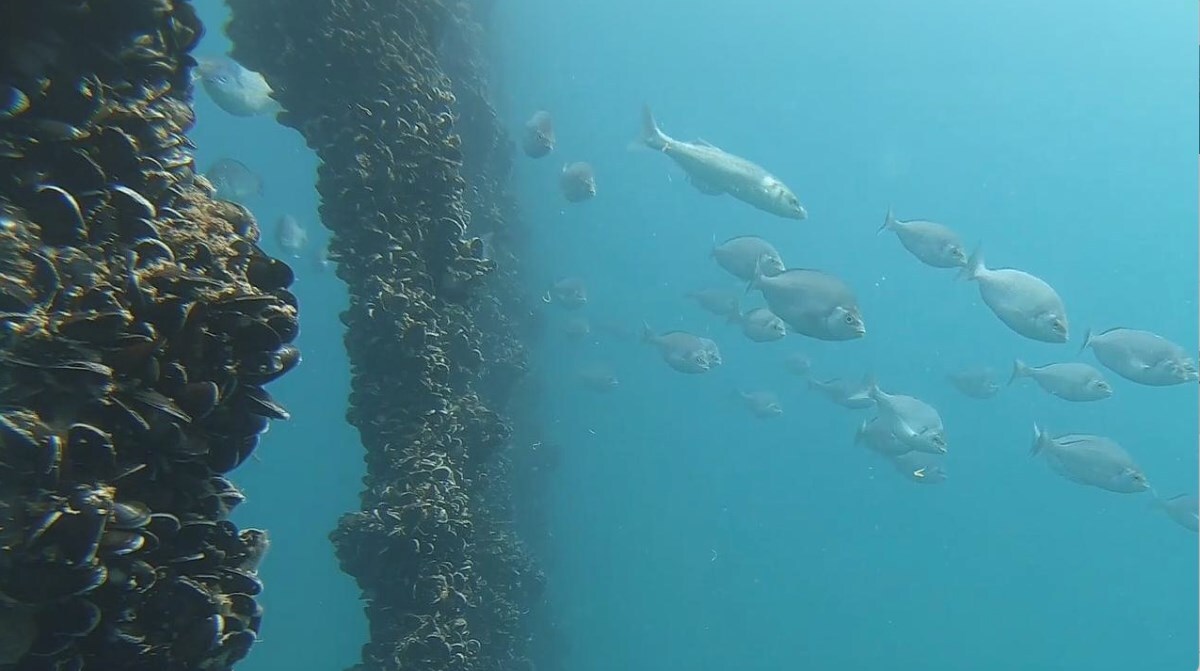
The two-year Fisheries Industry Science Partnerships (FISP) scheme-funded Ropes to Reefs project, led by scientists from the University of Plymouth Marine Institute, was set up to assess the wider ecosystem services and benefits of the UK’s first large-scale offshore mussel farm, located in Lyme Bay off the south coast of Devon. The project also aimed to quantify the connectivity of these ecosystem services with the adjacent marine protected areas and spillover effect to fishing grounds.
The farm itself has been monitored by the scientists for more than 10 years, in a long-term project funded by Offshore Shellfish (OSL), that has provided three PhD places looking at the restorative effects of offshore aquaculture.
A main aim of this “fisher, farmer, scientist” collaboration was to evidence the benefits of offshore aquaculture on fish stocks and habitat, in order to inform future management and policy, which would in turn, benefit the wider industry.
The project was co-designed in partnership with OSL, the Shellfish Association of Great Britain (SAGB), scallop farmers Scallop Ranch, seaweed farmers Biome Algae, and fishers. It was also supported by government and nature conservation bodies, as fisheries sustainable management and ecosystem restoration is at the core of the project.
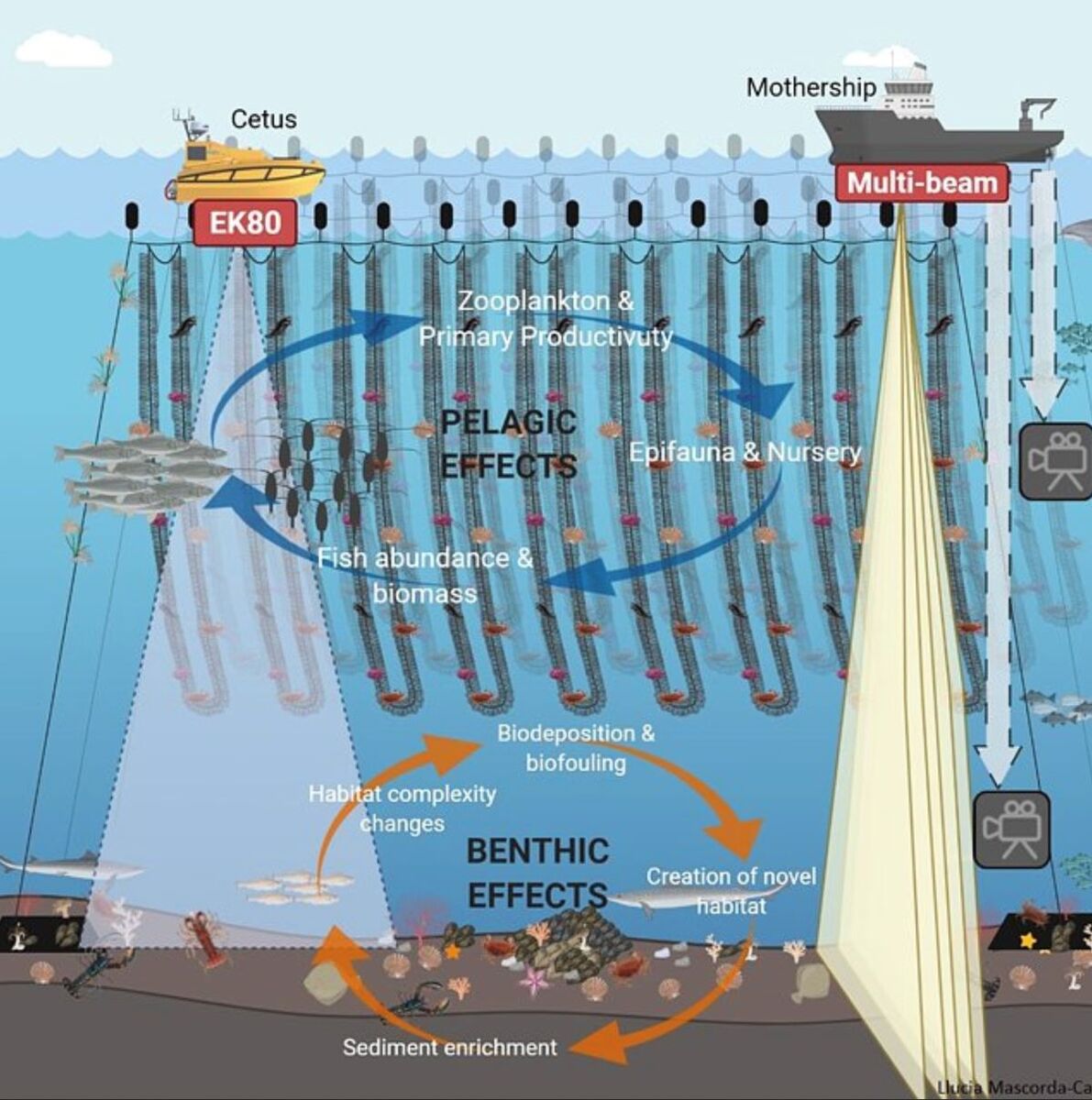
Using non-destructive remote sampling techniques including various echosounders including multibeam, and ground truthing cameras (cameras used to visually confirm evidence of regeneration of reef structures shown on sonar) deployed from local fishing boats, the team was able to collect high-resolution data on the biodiversity and extent of essential fish habitat and associated mobile species. They also set up the world’s first aquaculture telemetry network on the mussel, scallop and seaweed farms, which facilitated the tracking of fish and crustaceans through use of acoustic tags.
The research found a one-third increase in fish diversity and abundance in and around the farm, particularly of commercial species such as European bass, plaice, mullet, spider crab and lobster, which go on to be recruited into the local fishery.
The scientists also recorded the first account of biogenic reef creation (that is, reefs created by living organisms) by an aquaculture farm, with a 30% increase over four years. The reef provides food, shelter and nursery habit for many marine species.
Infaunal (sediment-dwelling) functional diversity was found to be 50% higher within the farm, which boosts the ecosystem services it provides, and helps to improve the resilience of the area to pressures.
Of particular benefit is the physical structures provided by offshore shellfish farms, which effectively exclude bottom-towed fishing within their boundaries, and allow for the restoration of previously degraded fishing grounds, with the consequent transformation of ecosystem functions the farm can provide.
The Plymouth team is now raising awareness about the positive ecosystem interactions of offshore shellfish farms and the services they provide. They argue that the results support the government on sustainable fisheries management under the Fisheries Act 2000 and demonstrate the industry’s role as a nature-based solution and Biodiversity Net Gain as part of the Blue Growth Agenda. They also show that offshore shellfish aquaculture supports marine conservation, helps to deliver Sustainable Development Goals (SDGs) and Good Environmental Status.
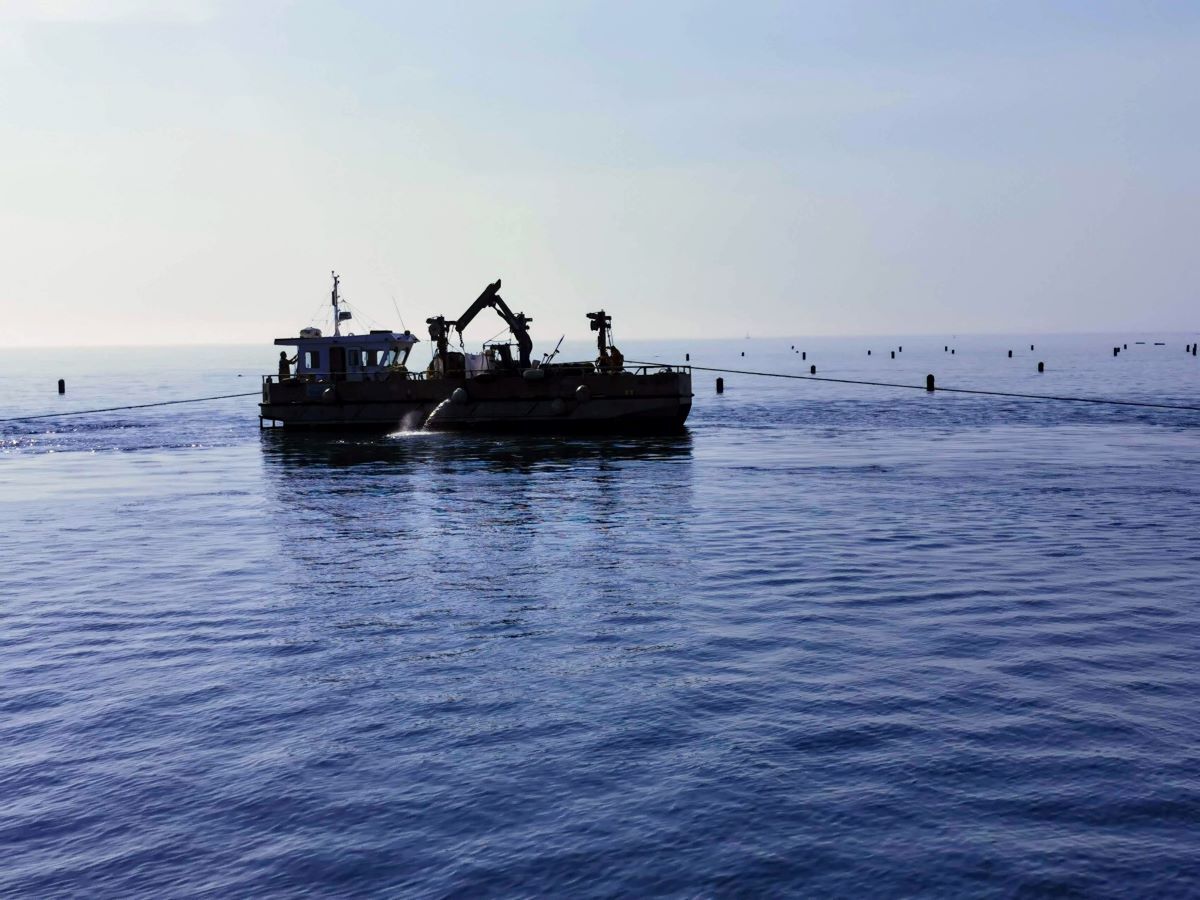
Taking the project to Parliament
Using the rationale that the inshore aquaculture industry has little room for expansion of production due to both real and perceived environmental impacts, plus conflicts over use of limited space and visual impacts, then the idea of offshore shellfish developments becomes increasingly attractive.
However, the reality is somewhat different, and development has been hampered by an unhelpful regulatory environment in the UK that shellfish farmers have struggled to overcome, and in particular, by the ongoing effects of an ill-thought-out post-trade Brexit agreement that is hampering exports.
In January, the University of Plymouth team presented their policy briefing on the environmental interactions of offshore shellfish aquaculture, using the results of the Ropes to Reefs project, to MPs and peers in Parliament during a “Sense about Science Evidence Week”. They reported a distinct lack of knowledge about the sector from those attending, but tremendous interest in its potential.
The policy brief pointed out that growth aspirations for English aquaculture, as outlined in the English Aquaculture Strategy document prepared as part of the Seafish 2040 initiative, predict 30,197 tonnes of mussel production by 2040. The Offshore Shellfish mussel farm currently produces around 3,000 tonnes per year, which equates to just over 1,000 tonnes of high-quality edible protein. The researchers worked out that this makes the mussels produced on this one farm, the equivalent of 5,000 average beef cattle, 44,000 sheep, 600,000 salmon or 400,000 chickens.
Aspirations for other species by 2040 are for 5,141 tonnes of oysters, 776 tonnes of scallops, 50 tonnes of lobsters and 13,067 tonnes of macroalgae. The total amount grown by rope and line culture is expected to be 37,523 tonnes.
If the shellfish aquaculture industry is helped to grow to its full potential, then it could deliver many benefits to the UK in terms of food security and economic resilience, as well as contributing to marine conservation as a Biodiversity Net Gain.
Key messages of the brief included the enhancement of commercial fish abundance and diversity, along with the spillover effect into adjacent grounds; the recovery of the seabed after years of damaging activity, along with the rewilding of benthic habitats, boosting of biodiversity, increase in ecosystem services and, by association, its role as a de facto marine protected area.
It was felt important to point out that offshore bivalve culture does not come with the same ecological impacts as finfish farming, or shellfish farming in sheltered waters. And as a key food production method, it provides food security and economic resilience, and enhances the UK’s seafood industry.
The team hope that their policy brief will open the eyes of government and regulators to encourage them to support the growth of the industry as a sustainable source of marine protein, and in turn, support secure access to export and UK markets. Further aspirations include the improvement of licensing procedures and the development of monitoring guidance to enable the evaluation of environmental impacts.
And if greater quantities of shellfish are grown in future, there is a need for improved public awareness of the benefits of restorative aquaculture, in addition to the health benefits of this sustainable protein.
Nicki Holmyard is a journalist and a director of Offshore Shellfish (OSL).
